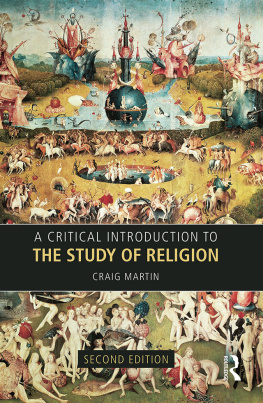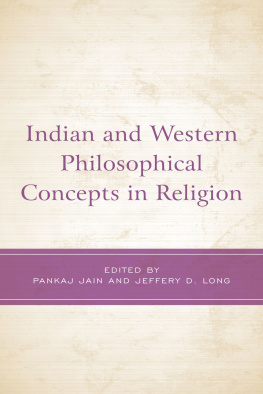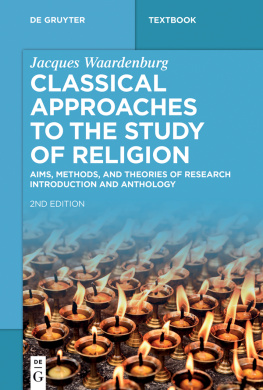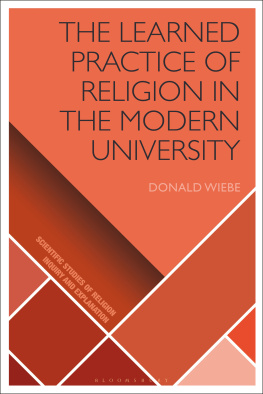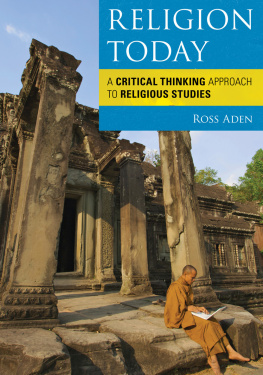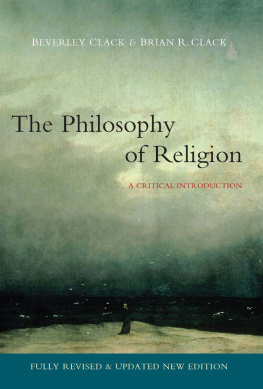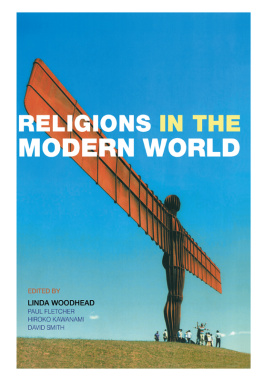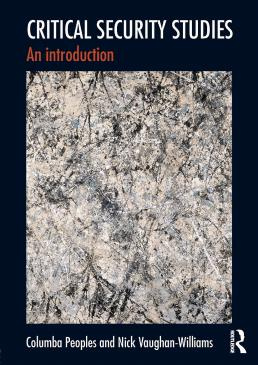The best textbook for teaching an introductory course in religious studies has just gotten better with a new edition. Martins ability to make critical theory not only understandable, but also useful, to beginning students, is the primary strength of his book. His choice of examples, illustrating the complex theoretical issues he addresses, guarantees student learning will be both significant and dare I say it enjoyable.
Charles William Miller, University of North Dakota, USA
A Critical Introduction to the Study of Religion provides key strategies for disentangling the category religion and examining religious traditions as complex social phenomena. The text is an effective introduction to explanatory socio-functional approaches, which enable students to ask new sets of questions of their subject. The second edition is a comprehensive model for a new vision of Religious Studies.
Kristian Petersen, University of Nebraska Omaha, USA
A Critical Introduction to the Study of Religion, Second Edition
A Critical Introduction to the Study of Religion introduces the key concepts and theories from religious studies that are necessary for a full understanding of the complex relations between religion and society. The aim is to provide readers with an arsenal of critical concepts for studying religious ideologies, practices, and communities. This thoroughly revised second edition has been restructured to clearly emphasize key topics including:
- Essentialism
- Functionalism
- Authority
- Domination.
All ideas and theories are clearly illustrated, with new and engaging examples and case studies throughout, making this the ideal textbook for students approaching the subject area for the first time.
Craig Martin is Associate Professor of Religious Studies at St. Thomas Aquinas College, USA.
A Critical Introduction to the Study of Religion
Second Edition
Craig Martin
First published 2017
by Routledge
2 Park Square, Milton Park, Abingdon, Oxon OX14 4RN
and by Routledge
711 Third Avenue, New York, NY 10017
Routledge is an imprint of the Taylor & Francis Group, an informa business.
2017 Craig Martin
The right of Craig Martin to be identified as author of this work has been asserted by him in accordance with sections 77 and 78 of the Copyright, Designs and Patents Act 1988.
All rights reserved. No part of this book may be reprinted or reproduced or utilized in any form or by any electronic, mechanical, or other means, now known or hereafter invented, including photocopying and recording, or in any information storage or retrieval system, without permission in writing from the publishers.
Trademark notice : Product or corporate names may be trademarks or registered trademarks, and are used only for identification and explanation without intent to infringe.
British Library Cataloguing-in-Publication Data
A catalogue record for this book is available from the British Library.
Library of Congress Cataloging-in-Publication Data
Names: Martin, Craig, 1976 author.
Title: A critical introduction to the study of religion / Craig Martin.
Description: Second edition. | Abingdon, Oxon ; New York, NY : Routledge is an imprint of the Taylor & Francis Group, an Informa Business, [2017] | Includes bibliographical references and index.
Identifiers: LCCN 2016043235 | ISBN 9781138202245 (hbk) | ISBN 9780415419932 (pbk) | ISBN 9781315474410 (ebk)
Subjects: LCSH: ReligionStudy and teaching.
Classification: LCC BL41 .M344 2017 | DDC 200.71dc23
LC record available at https://lccn.loc.gov/2016043235
ISBN: 978-1-138-20224-5 (hbk)
ISBN: 978-0-415-41993-2 (pbk)
ISBN: 978-1-315-47441-0 (ebk)
Typeset in Minion Pro
by Apex CoVantage, LLC
I ask the pardon of those teachers who, in dreadful conditions, attempt to turn the few weapons they can find in the history and learning they teach against the ideology, the system and the practices in which they are trapped. They are a kind of hero. But they are rare and how many (the majority) do not even begin to suspect the work the system (which is bigger than they are and crushes them) forces them to do.
Louis Althusser, Lenin and Philosophy and Other Essays (2001, 106)
This book is dedicated to such heroes, including Erica
Contents
Guide
The improvements to the second edition have been facilitated greatly by those who wrote journal reviews, the anonymous reviewers at Routledge, and my colleagues whove generously shared with me their experiences teaching the book. The latter have been particularly invaluable in letting me know what worked well, what did not work well, what was glaringly left out, and what was unnecessarily included. Thanks go to Rebekka King, Pat McCullough, Adam Miller, Dori Parmenter, Kristian Petersen, Erin Roberts, Kevin Schilbrack, and Chris Zeichmann. Apologies to the many colleagues whove given me feedback but whom Ive forgotten here.
From St. Thomas Aquinas Collegemy academic homeI wish to thank those colleagues who, over the last several years, have generously provided me with intellectual stimulation, pedagogical commiseration, or emotional support, including Ellen Chayet, Rachel Golland, Jennifer Hawk, Meghan Mihal, Staci Shultz, Robert Trawick, Ben Wagner, Ryan Wynne, and Barbara Yontz.
Ive been lucky enough to be surrounded by generous peers whove offered to read and comment on drafts of various chapters. Thanks to Zoe Anthony, Tara Baldrick-Morrone, Matthew Baldwin, Elliott Bazzano, Daniel Jones, Rebekka King, Adam Miller, Sarah Montello, and Regine Rossiand apologies again to those whom Ive forgotten. As always, the views represented in this book do not necessarily reflect the views of those who helped me improve it.
Thanks go to Tak Toyoshima, creator and illustrator of Secret Asian Man comics, for permitting me to reproduce the comic strip in .
Last, and most importantly, I would like to thank those hundreds of students whove worked through this book with me over the last four years. I especially want to thank Savannah Finver, Kayla Hunter, and Sarah Montellothree students whove constantly inspired me, pushed me, challenged me, and demanded clarification. I would like to dedicate the material new to the second edition to them, as much of it was inspired as a direct result of the work weve done together and the many engaging conversations weve had.
This book has benefitted greatly from the overwhelming generosity of peers and colleagues who were willing to field ideas, read drafts of chapters, or read the entire manuscript.
From St Thomas Aquinas College, I first want to thank my undergraduate students who suffered through the early drafts. Particular mention goes to Emily Hough, Angela Banta, and Dillon Challener for encouraging me to foreground the practical and political consequences of classification in . Robert Trawick, my office mate and fellow religion professor, deserves thanks for all of the office conversations and pedagogical commiseration. I want to thank Ellen Chayet for continually encouraging me to foreground questions regarding domination and oppression in the classroom. Last, thanks go to Nicole de Fee and Ryan Wynne for general moral supportthey kept me from going crazy as I attempted to balance my research with my teaching.
As I work at a college with only one other faculty member in religious studies, I often depend upon Facebook for intellectual engagement on theoretical and methodological questions related to the study of religion. I want to thank my Facebook friends in general, many of whom engaged me in numerous online conversations while I was working on this book; special mention goes to Russell McCutcheon, Nathan Rein, Tim Murphy, Tim Morgan, Kenny Paul Smith, Bill Arnal, Aldea Mulhern, Chris Zeichmann, Nicholas Dion, and Robert Trawick.

